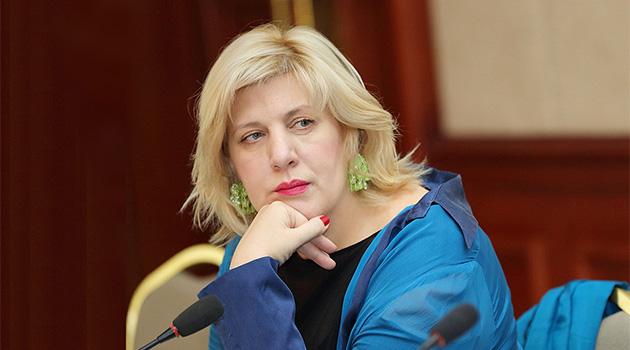Council of Europe Commissioner for Human Rights Dunja Mijatović on the occasion of Roma Holocaust Memorial Day: We must ensure the protection of the human rights of Romani people

In a press release on the occasion of Roma Holocaust Memorial Day, Council of Europe Commissioner for Human Rights Dunja Mijatović has called on all European states to recognize that the human rights of Romani people have been violated in the past, are being violated in the present, and that they must increase their efforts to ensure the protection of the human rights of Romani people in all areas of life. “On this day, we honor the hundreds of thousands of Romani people who were killed during the Second World War, many of whom were deported and then murdered in concentration camps, while others were victims of painful medical experiments,” said Mijatović, adding that all EU Member States must acknowledge the importance of commemorating the history of Romani people in Europe.
“They can [acknowledge this importance] by using commemorations of the Holocaust of the Roma as a tool for keeping the memory of these victims alive and by reflecting on the legacy of the atrocities committed against Romani people,” she said, giving the positive example of the Czech Republic beginning the demolition of the industrial pig farm at Lety u Písku, which stands on the site of a former WWII-era concentration camp for Romani people there. Mijatović said it is important to come to terms with the deeply-rooted prejudices and stereotypes that incite the omnipresent discrimination Romani people continue to face against a background of the ongoing hate crimes and hate speech that target them.
“We must recognize that it is the ongoing racism that leads to repeated violations of human rights, as is being demonstrated, for example, by Romani people’s limited access to basic services in association with the COVID-19 pandemic and the discrimination they have faced when fleeing the war in Ukraine. It is our obligation to combat antigypsyism and ensure Romani people are included in society,” she said.
Tuesday, 2 August, marks 78 years since the tragic night in 1944 when the Nazis annihilated the prisoners of what was called the “Gypsy Family Camp” at Auschwitz-Birkenau in an operation that lasted into the early morning hours of 3 August; in the gas chambers, despite the active resistance of the prisoners, they murdered as many as 4,300 Romani people, according to the most recent studies. Annually 2 August is now commemorated by Romani people from all over Europe as Roma Holocaust Memorial Day.
During the 17 months of the existence of what was called the “Gypsy Family Camp” (February 1943-July 1944), 23,000 children, men and women were imprisoned there. Approximately 21,000 Romani and Sinti prisoners died in the camp.
Other prisoners of Romani origin were murdered in the Bełżec, Chełmno, Majdanka, Sobibór and Treblinka concentration camps. Still others, the number of whom it is difficult to estimate, were shot to death and buried in mass graves in the forest.
The extermination policy of Nazi Germany led to the deaths of an estimated half a million Roma and Sinti from all over Europe. Some estimates put the number as high as 800,000 victims, or anywhere between one-quarter and one-half of the prewar population of Roma.